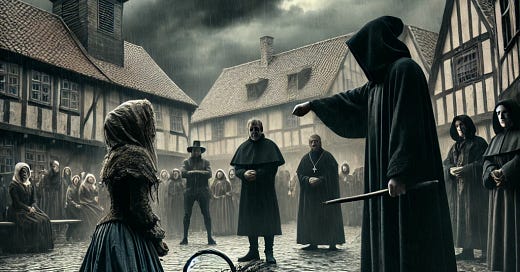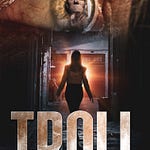The history of healthcare is riddled with fascinating and often dark periods, but perhaps none is as chilling as the intersection of medicine, religion, and superstition during the Dark Ages. On this episode of On The Edge with Jon Biddle, we’re diving into the witch hunts and their profound influence on medical history.
The Dark Ages was a time when the collapse of the Roman Empire had devastating effects on society. The public health infrastructure that Rome once proudly upheld—its aqueducts, baths, and medical facilities—crumbled, leaving people vulnerable to disease, injury, and ignorance. What little medical knowledge remained from the Greco-Roman world was often preserved by the Church. But far from advancing healing practices, the Church cast a shadow over medical progress.
Faith and superstition soon became the bedrock of healing. Illness wasn’t seen as a natural occurrence—something caused by poor sanitation or infection—it was considered divine punishment or a test of faith. This approach stifled any potential progress in understanding how the human body works. Scientific inquiry was dismissed, and religious rituals took the place of medical treatment. Prayers, relics, and ceremonies were used in the hope of divine intervention, while natural causes of disease were ignored. The soul became more important than the body, and treating the sick often meant treating their spirits first.
But one of the darkest aspects of this period was the way women, particularly those who had acted as midwives or healers, were treated. Female knowledge, once valued for its understanding of herbal remedies and caregiving, was now seen as a threat. These women, practising folk medicine or midwifery, were increasingly viewed with suspicion, and the stage was set for the witch hunts that would follow. The mistrust, and later persecution, of women healers didn’t just marginalise them—it effectively stifled centuries of valuable medical knowledge. Accusations of witchcraft, fuelled by texts like Malleus Maleficarum written by Heinrich Kramer, became a widespread justification for the execution of thousands of women.
The Malleus Maleficarum was a disturbing handbook of misogyny and superstition. It argued that women were morally weaker and more susceptible to the devil’s temptations, making them prime candidates for witchcraft. But the influence of this twisted guide didn’t end with the persecution of women—it deeply shaped healthcare. Midwives and herbalists, whose skills were once essential to communities, were suddenly branded as witches. Their understanding of healing, which had been passed down through generations, was criminalised and destroyed.
This book became one of the most widely distributed texts, thanks to the advent of the printing press, and it spread fear and ignorance throughout Europe. In a time when superstition held sway, many misunderstood diseases were often attributed to witchcraft. Seizures, mental illness, and even the plague were seen as evidence of dark forces at play. And instead of seeking rational, medical treatments, people turned to persecution and religious hysteria. Victims of the plague, if they died in front of an altar, were deemed sinners beyond salvation. Those who survived were considered touched by divine grace.
It’s mind-boggling to think that for centuries, medical progress was shackled by fear, control, and superstition. As we reflect on this period, it’s clear that the intertwining of religion and medicine had catastrophic consequences for healthcare. The persecution of women healers, the suppression of scientific enquiry, and the church’s grip on medical knowledge delayed advancements by centuries. Imagine where we’d be today if institutions like the library in Alexandria had not been destroyed, or if secular healing methods had been allowed to flourish?
Thankfully, change began to take root. As Europe edged out of the Dark Ages and into the Renaissance, the seeds of modern medicine were planted. Classical texts, long preserved in monasteries, laid the foundation for a new era. Brave figures like Paracelsus and Vesalius began challenging the dominance of the Church and advocating for a more empirical approach to medicine. Surgery, anatomy, and scientific methods began to displace superstition, but the legacy of the Church’s control was hard to shake off. Women in medicine continued to face persecution, and mental illness remained deeply misunderstood well into the modern era.
Today, we might chuckle at the absurdity of thinking epilepsy was caused by demonic possession, but we are still battling the remnants of these outdated beliefs. Our current healthcare system owes its existence to the brave individuals who dared to question religious dogma and push for progress in the face of overwhelming opposition. Yet, the shadow of the past lingers, especially when it comes to women's healthcare and mental health. We need only look at modern discussions around reproductive rights or the stigma still attached to mental illness to realise that the battle between superstition and science is far from over.
So, as we move forward, the lessons of the Dark Ages remind us of the importance of questioning, of advancing our understanding of medicine, and of never allowing fear and superstition to dominate how we treat and understand illness.
Thanks for tuning in to On The Edge. Be sure to check out my book Harvester on Substack, with new chapters released every Sunday. This Wednesday, I’ll be dropping a deep dive into the witch hunts and their lasting impact on modern medicine, and I’d love to hear your thoughts. Also, don’t miss my upcoming Op-Ed on terrorism, which will hit Substack tomorrow.














Share this post